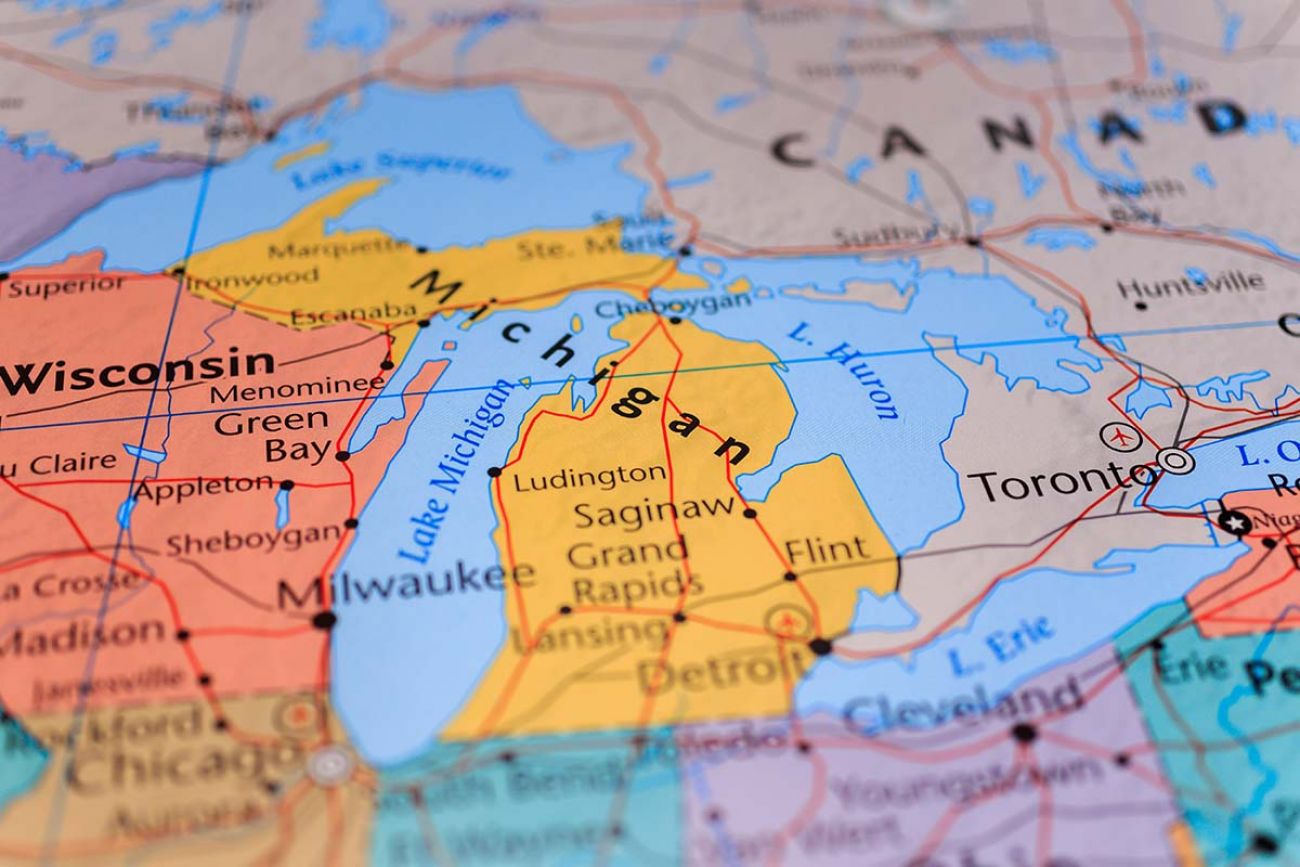Michigan political districts to face third lawsuit, alleging Republican bias

LANSING — A coalition of advocacy groups announced Friday its intention to challenge the newly-adopted Michigan House map, claiming it is biased in favor of Republicans.
The League of Women Voters of Michigan, Asian & Pacific Islander American Vote, the National Network for Arab American Communities, and Detroit Action told reporters they plan on filing the lawsuit with the Michigan Supreme Court next week.
It would be the third lawsuit against redistricting maps from the Michigan Independent Citizens Redistricting Commission, which was created by voters in 2018 to redraw legislative boundaries every 10 years after the decennial census.
Related:
- The Michigan redistricting panel is done mapping. Now it’s time for drama.
- Michigan redistricting panel’s top attorney quits amid two court challenges
- Detroit caucus to court: Don’t make Blacks ‘sacrificial lamb’ of redistricting
For years, the party in power in Lansing drew the districts for state Legislature and Congress, a largely secretive process that led to districts a federal court concluded were among the nation’s most gerrymandered.
“The voters were very clear in 2018 that the goal of Proposal 2 was to end partisan bias in our legislative districts,” Mark Brewer, a lawyer and former chair of the Michigan Democratic Party, told reporters on Friday.
“The commission failed to achieve a mandatory goal of the Michigan Constitution.”
Edward Woods III, the spokesperson for the redistricting commission, said in a statement “the commission still believes that it followed the seven-ranked redistricting criteria stated in Michigan’s Constitution” for all three maps.
The 13-member Michigan redistricting commission in December approved maps that are set to take effect in March.
Members followed the advice of a voting rights attorney and a partisan fairness expert when they drew the new lines.
According to the redistricting commission’s partisan fairness analysis, the state House map has a 5.3 percent GOP bias. That means Republicans would be favored in 53 of 110 districts even if they received 48 percent of the total votes in all statewide House races.
However, a Bridge Michigan analysis based on more narrow election results, shows the map leans slightly Republican, 56-54.
Brewer told reporters the plaintiffs will present the Michigan Supreme Court with an alternative map that would be fairer.
Rebeka Islam, the executive director of APIA Vote Michigan, told reporters her group participated in the redistricting process but the maps but “the adopted maps still missed the mark.”
The Michigan Supreme Court also is weighing a lawsuit from the Detroit Caucus of the Michigan Legislature on the maps, claiming they violate the Voting Rights Act by further diluting the voting power of Black voters.
Meanwhile, a group of seven Republicans filed a lawsuit in federal court challenging the congressional map. The plaintiffs said the maps are unconstitutional because of the population deviations and because cities, counties, and townships are fragmented without necessary reasons.
See what new members are saying about why they donated to Bridge Michigan:
- “In order for this information to be accurate and unbiased it must be underwritten by its readers, not by special interests.” - Larry S.
- “Not many other media sources report on the topics Bridge does.” - Susan B.
- “Your journalism is outstanding and rare these days.” - Mark S.
If you want to ensure the future of nonpartisan, nonprofit Michigan journalism, please become a member today. You, too, will be asked why you donated and maybe we'll feature your quote next time!




